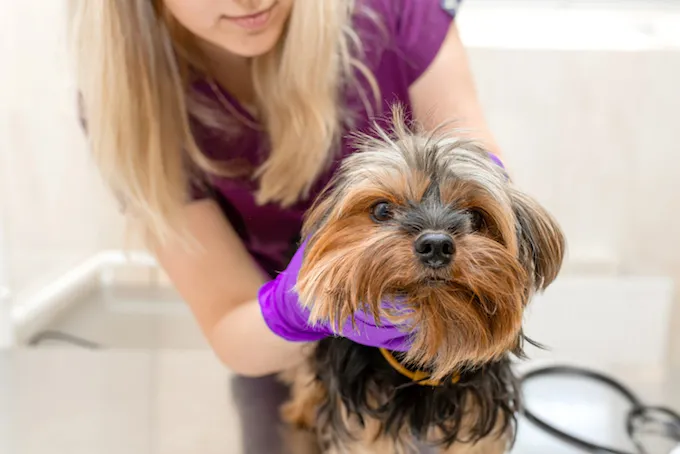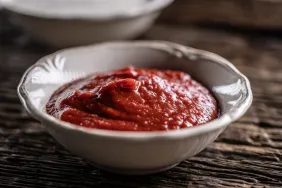Protein losing enteropathy in dogs happens when plasma protein in the gastrointestinal tract causes inflammation. The condition is often shortened to PLE.
Unfortunately, certain dog breeds are predisposed to the condition. For example, Yorkshire Terriers, Basenjis, and Maltese Terriers suffer from it a lot.
Technically, the condition is also known as intestinal protein loss in dogs.
If you see the signs of the condition in your dog, then get to a veterinarian for a proper diagnosis and treatment.
Here’s what you should know about the symptoms, causes, and treatments for the condition.
Symptoms of Protein Losing Enteropathy in Dogs
The condition produces a wide range of symptoms. For example, some of the most common symptoms are:
- Swollen stomach
- Weight loss
- Diarrhea
- Loss of appetite
- Poop with blood in it
- Poop with mucus in it
- Swollen lymph nodes
- Lethargy
- Swollen feet
Causes of Protein Losing Enteropathy in Dogs

The cause of the condition is usually another underlying condition. For instance, some of the common causes include:
- Food allergies
- Inflammatory bowel disease
- Ulcers
- Congestive heart failure
- Hookworm
- Infections (bacterial and fungal)
Additionally, the following breeds are most predisposed to developing the condition:
- Yorkshire Terrier
- Norwegian Lundehund
- Wheaten Terrier
- Basenji
- Maltese Terrier
Treatments for Protein Losing Enteropathy in Dogs
Firstly, your vet will ask about your dog’s symptoms. Secondly, your vet will ask about your dog’s full medical history. This will include breed-specific problems.
Thirdly, a full physical examination will be carried out. Also, blood and urine tests will also be taken. Sometimes, a poop sample will be needed. This is to check for parasites.
Additionally, X-rays and ultrasounds can be used to examine your dog’s abdomen. Also, an endoscopy can be ordered.
Generally, treatment focusses on the underlying cause. For example, antibiotics can be used for infections.
As always, if your vet prescribes your dog any medicine, make sure to stick to the correct dose and frequency instructions. Also, complete the full course of medicine.
Additionally, diet changes can help with inflammatory bowel disease and food allergies. Your vet will formulate a safe diet for your dog. Also, dietary supplements can help. You can read more about dietary supplements for your dog here!
Have you ever cared for a dog who suffered from this condition? How did your vet help your dog recover? Let us know in the comments section below.









